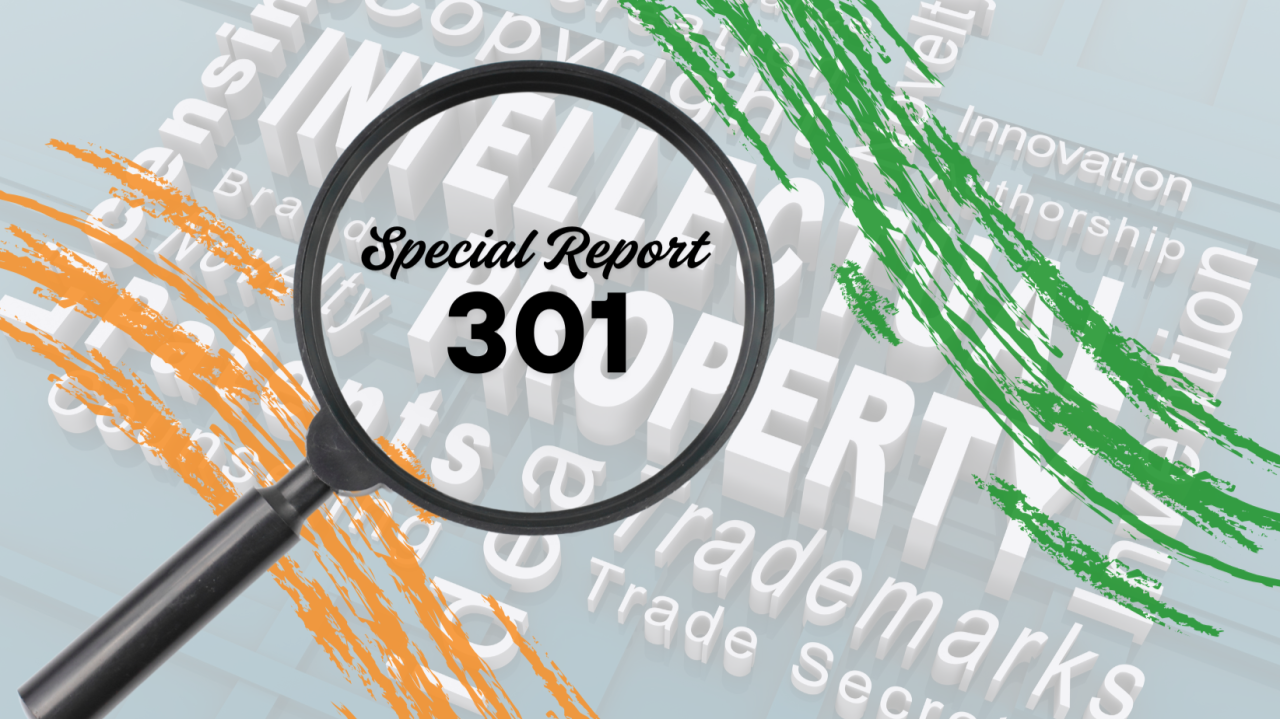
10-Jun-2025 11:00 AM
Understanding the Special 301 Report
The Special 301 Report is an annual assessment released by the Office of the U.S. Trade Representative (USTR). It serves as a key tool for the U.S. to evaluate and address how different countries protect and enforce intellectual property rights (IPR). Mandated under Section 182 of the U.S. Trade Act of 1974, this report was first introduced in 1989 and has since been a central piece of America’s trade and intellectual property diplomacy.
Purpose and Impact
The report’s primary goal is to identify countries whose IPR laws or enforcement practices harm U.S. businesses. Once a country is highlighted, particularly if it's placed on the Priority Watch List, it often becomes subject to further trade scrutiny or diplomatic pressure. The report plays a significant role in influencing bilateral trade negotiations, tariff decisions, and even foreign investment discussions. Ultimately, it encourages countries to improve their IPR regimes and align more closely with global best practices.
India’s Status in the 2025 Report
In the 2025 edition of the report, India has once again been placed on the Priority Watch List, alongside nations such as China, Russia, Indonesia, and Argentina. The move signals persistent U.S. concerns about how intellectual property is managed and enforced in India.
Key Concerns Raised About India
Ambiguous Patent Laws: The USTR criticizes the unclear interpretation of the Indian Patents Act, especially in areas like pharmaceutical patents, which they say hampers innovation and market access.
Weak Enforcement: There’s inadequate action against piracy, counterfeiting, and online content theft, undermining the rights of creators and companies.
Trade Secrets Protection: India lacks a comprehensive legal structure to protect trade secrets, which can discourage investment from knowledge-intensive industries.
High Customs Duties: Tariffs on sectors like information and communication technology (ICT), solar energy equipment, and pharmaceuticals are seen as trade barriers for U.S. companies.
Other Issues:
Widespread signal theft in broadcasting.
Unauthorized reproduction of academic content.
Circumvention of technological protection measures (TPMs).
About the Office of the U.S. Trade Representative (USTR)
The USTR is a key federal agency headquartered in Washington, D.C., tasked with crafting and overseeing U.S. trade policy. Its team includes over 200 professionals with expertise in regional and thematic trade issues.
Roles and Responsibilities
Negotiating bilateral and multilateral trade deals.
Handling intellectual property enforcement and dispute resolution.
Publishing several trade-related documents including:
Special 301 Report
National Trade Estimate Report
Notorious Markets List
Coordinating with stakeholders such as foreign governments, U.S. Congress, business groups, and civil society organizations.
Multiple Choice Questions (MCQs)
1. What is the purpose of the Special 301 Report?
a) To review trade in agricultural products
b) To assess global IPR protection and enforcement
c) To monitor environmental compliance
d) To track immigration trends
Answer: b) To assess global IPR protection and enforcement
2. When was the Special 301 Report first introduced?
a) 1974
b) 1985
c) 1989
d) 1991
Answer: c) 1989
3. Which of the following is a concern raised by the USTR about India in the 2025 report?
a) Lack of foreign policy
b) Signal theft and piracy issues
c) Low agricultural productivity
d) High carbon emissions
Answer: b) Signal theft and piracy issues
4. What does the Priority Watch List indicate?
a) Countries leading in technological innovation
b) Countries that support U.S. trade policies
c) Countries with serious IPR protection concerns
d) Countries with strong patent systems
Answer: c) Countries with serious IPR protection concerns
5. Where is the USTR headquartered?
a) New York
b) Geneva
c) San Francisco
d) Washington D.C.
Answer: d) Washington D.C.